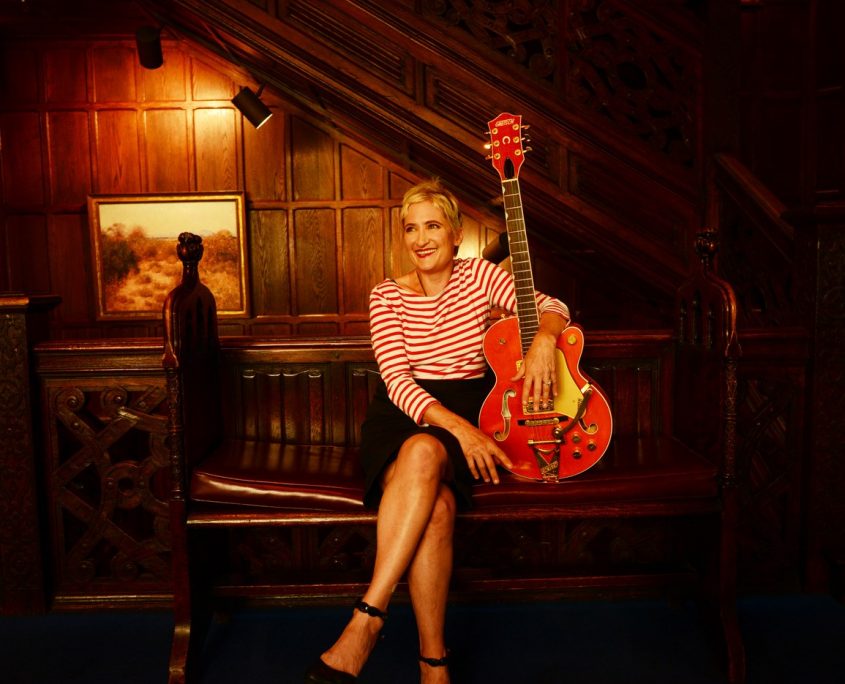
Mountain Stage
Sun, August 19, 2018 at 7:00 PM EDT
- This event has passed.
Mountain Stage with Larry Groce returns to Marietta, Ohio! With Natalie Prass, Red Wanting Blue, Todd Burge, Jill Sobule, and Gurf Morlix.
For more than 30 years Mountain Stage with Larry Groce has been the home of live music on public radio. The two-hour radio show is produced by West Virginia Public Broadcasting and distributed by National Public Radio weekly on more than 240 stations across America and around the world via NPR Music and mountainstage.org. The show, which is recorded before a live audience, features performances by seasoned legends and emerging stars in genres ranging from folk, blues and country to indie rock, synth pop, world and alternative music, and beyond.
Singer/songwriter Larry Groce serves as the show’s host, artistic director and co-producer. The Mountain Stage house band includes jazz pianist Bob Thompson, vocalist Julie Adams, bass player Steve Hill, drummer Ammed Solomon and guitarists Michael Lipton and Ryan Kennedy. The band is directed by Ron Sowell.
Additional artists will be announced soon. If you haven’t done so already, be sure to sign up for our email updates, so you can be the first to know when this performance’s guests are announced.
Mountain Stage is produced by West Virginia Public Broadcasting and distributed by NPR Music.
Guest Artists
Natalie Prass
Though she’d been honing her craft and paying her dues for years, Prass first emerged to international acclaim in 2015, when her debut record earned its rightfully rapturous reception. Rolling Stone swooned for the Virginia native’s “beguiling voice and refined taste,” while Pitchfork praised her album as a “smoldering perspective on passionate romance,” and The New Yorker simply called it “timeless.” She appeared on the Martin Scorsese-helmed HBO series Vinyl, performed on the BBC’s Later With Jools Holland, and CBS This Morning, and racked up more than ten million streams on Spotify. Before long, she was headlining dates around the world and playing festival stages from Bonnaroo and Rock En Seine to End Of The Road and Forecastle.
Online: http://www.natalieprass.com/
Red Wanting Blue
Hailed as “Midwestern rock heroes” by American Songwriter, Red Wanting Blue has spent the last twenty years establishing themselves as one of the indie world’s most enduring and self-sufficient acts, notching appearances everywhere from Letterman to NPR and reaching #3 on the Billboard Heatseekers chart, all while operating largely outside the confines of the traditional music industry. For their powerful new album, ‘The Wanting,’ the band handed production duties over to acclaimed singer/songwriter Will Hoge, who helped them create their most ambitious, fully realized collection yet. Recorded in Nashville, TN, the record draws on many of the group’s traditional strengths—indelible melodies, infectious hooks, explosive performances—even as the making of it pushed them far outside their comfort zone and forced them to take an unprecedented, nearly year-long break from touring.
Alternately triumphant and melancholic, the songs on ‘The Wanting’ are both muscular and nuanced, with frontman Scott Terry’s epic, heartfelt vocals soaring above the band’s gritty brand of driving rock and roll. The record opens with the rousing “High and Dry,” a feel-good rocker that also serves as something of a mission statement for a fiercely independent group that’s as much a band as they are a family, with Terry singing, “I want to stand on my own two feet again / And when I mess up / That’s when I hope my friends will pick me up.” On “Ulysses,” the band channels early Phil Collins with pulsing synths and larger-than-life drums, while the tender “Glass House” crescendos from a delicate whisper to a triumphant roar, and the dreamy “I’ve Got A Feeling It Hurts” calls to mind the hypnotic drive of REM mixed with a touch of Jayhawks jangle.
“This is really the most collaborative album our band has ever made,” Terry says of the wide range of influences. “It’s the first record where every member contributed to the writing, and I feel like we all matured as artists because of it.”
Over the course of ten previous studio albums, Red Wanting Blue brought their passionate, unforgettable live show to every city and town that would have them, blazing their own distinctive trail through the American heartland as they built up the kind of fanatically dedicated audiences normally reserved for arena acts. In 2016, they celebrated with a 20th anniversary retrospective album/concert film entitled ‘RWB20 Live at Lincoln Theater,’ which captured the band in all their glory at a sold-out hometown show in Columbus, OH.
Red Wanting Blue is:
Scott Terry (Vocals, Tenor Guitar, Ukulele)
Mark McCullough (Bass, Chapman Stick, Vocals)
Greg Rahm (Guitar, Keyboards, Vocals)
Eric Hall (Guitar, Lap Steel, Vocals)
Dean Anshutz (Drums & Percussion)
Online: www.redwantingblue.com
Todd Burge
Mountain Stage Radio Host, Larry Groce has introduced Burge many times as “West Virginia’s premier singer-songwriter” — praise Burge does not take lightly. Drawing on his peculiar wit, nimble guitar playing and the occasional inclusion of ukulele, whistling and falsetto vocals, Burge’s music conjures everyone from Roger Miller to Richard Thompson, often in the same verse of a single song.
A native of West Virginia’s Wood County region, Burge spent the ’80s and ’90s earning his place as one of the most important and enduring figures in the state’s music scene, fronting everything from the alt-rock band 63 Eyes to the outlaw-country cover project Triple Shot. Since the early 2000s, Burge has concentrated on his singular brand of folk-pop storytelling.
In November of this year, Burge will release two original albums that were recorded thirty-two years apart. Todd Burge (1986 The First Album) was recorded while Burge was still attending West Virginia University back in the mid-80s. The album got tangled up in some record industry politics and as a result, never hit the music store bins. The new album, recorded by Don Dixon (Mary Chapin-Carpenter, REM) will be entitled Reflection (#ReflectionBurgeAlbum) and lyrically looks back on some facts and fiction that have brought Burge to where he is today. (Nobody is really sure where that is, including me. TB)
Todd has been invited back to Morgantown WV this fall to teach the very first songwriting course that West Virginia University has ever offered. At the end of the semester, WVU will release an album of songs created by the students.
Todd Burge resides in Parkersburg, WV with his wife Lisa, kids Sophia and Will and their dog, Levon. (We don’t get cute and pretend the dog has human traits, we love him, but we own him. TB)
Most recent recordings:
2018 – Adam of Eve b/w Bald Eagle (Single)
2016 – Live on Mountain Stage (2006-2015)
2015 – Imitation Life (Produced by Tim O’Brien)
Online:
www.toddburge.com
www.facebook.com/toddburge
www.twitter.com/toddburge
www.instagram.com/todd.burge
Jill Sobule
On Nostalgia Kills (out September 14 on Jill’s own Pinko Records), the woman hailed by The New York Times for making “grown-up music for an adolescent age” turns her warm wit and poet’s eye on herself more than ever before, revisiting moments from throughout her life that made her into the person she is today. It’s an especially poignant look back at childhood — “exorcising some junior high school demons,” as she puts it.
Looking back is a new experience for Jill Sobule. Ever since she first caught mainstream attention with her 1995 song “I Kissed a Girl” — the first song about same-sex romance ever to crack the Billboard Top 20 (and no relation to the later Katy Perry tune) — she’s always pushed forward, exploring new sounds and subject matter with each passing album and refusing to be pigeonholed by her early hits (which also include the ‘90s alt-rock anthem “Supermodel,” featured in an iconic scene in the film Clueless).
For all its graceful, funny and heartbreaking explorations of awkward youth and grown-up regrets, Nostalgia Kills is as of-the-moment as anything in Jill Sobule’s catalog. Through her own experiences, she explores issues our society still collectively struggles with (LGBTQ rights, teen mental health, our unhealthy obsession with staying forever young) and gently skewers our tendency to dwell on the past at the expense of addressing the present. As she sings on the title track: “We look at ourselves in a long row of mirrors/We get smaller and smaller with each passing year/We have to keep moving or die.”
Gurf Morlix
Once, when asked by a promoter for a copy of his biography, Gurf Morlix responded with just two words, “Legendary integrity.” He would later admit that his response was perhaps a bit pompous, “but true,” he added. “Well, half true anyway.” The story is a telling one, demonstrating not only Morlix’s directness, which is famous amongst his musical colleagues – or perhaps infamous, depending on who you ask – but also his dry sense of humor and no-bullshit approach to life, music, and the music business.
Had he sent the promoter a more traditional bio, it likely would have noted that Gurf was born outside Lackawanna, New York (near Buffalo), saw the Beatles on Ed Sullivan, formed a band (in which Peter Case made his stage debut), moved to Los Angeles, worked for more than a decade as Lucinda Williams’ guitarist, band-leader and backing vocalist, produced Lucinda’s acclaimed Sweet Old World and eponymous albums, famously left Lucinda, toured with Warren Zevon, moved to Austin, befriended Blaze Foley, produced a number of classic Americana albums you likely own if you are any kind of Americana music fan, played on many more albums you probably own if you fall into that category, received the Americana Music Association’s “Instrumentalist of the Year” award, went on to make seven critically acclaimed albums of his own, and then toured the world supporting them. He now continues to play live, produce albums for artists that move him, and make his own albums. He even goes fishing every once in a while.
Online:
gurfmorlix.com/
Facebook







